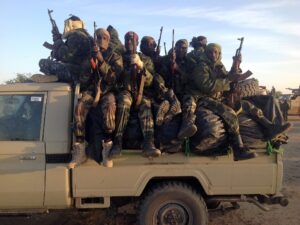
TTP’s Propaganda: Weekly Insight March 7-13, 2025.
During the week of March 7–13, 2025, Pakistan witnessed a slight decrease in militant attacks, though the intensity of violence remained unchanged. A total of 15 militant attacks were recorded, compared to 19 in the previous week. However, the week gained significant attention due to the hijacking of the Jaffar Express by the Balochistan Liberation Army (BLA), a high-profile incident that unfolded over three days. The attack resulted in the tragic killing of 21 hostages — later revealed by PICSS to be off-duty security personnel traveling home — and four security forces personnel. Despite a phased rescue operation that eliminated 33 militants, the incident highlighted serious security and intelligence failures.Regionally, Balochistan saw a sharp 80% surge in militant activity, reporting nine attacks compared to five the previous week. In contrast, Khyber Pakhtunkhwa (KP) experienced a 50% drop, with three attacks, while erstwhile FATA recorded a 25% decrease, reporting three incidents. The week’s militant tactics included five targeted killings, five tactical assaults, two grenade attacks, and one each of an IED explosion, a combined suicide attack and tactical assault, and a kidnapping.Security forces carried out four counter-terrorism operations, resulting in the elimination of 12 alleged militants and the arrest of 10 […]
